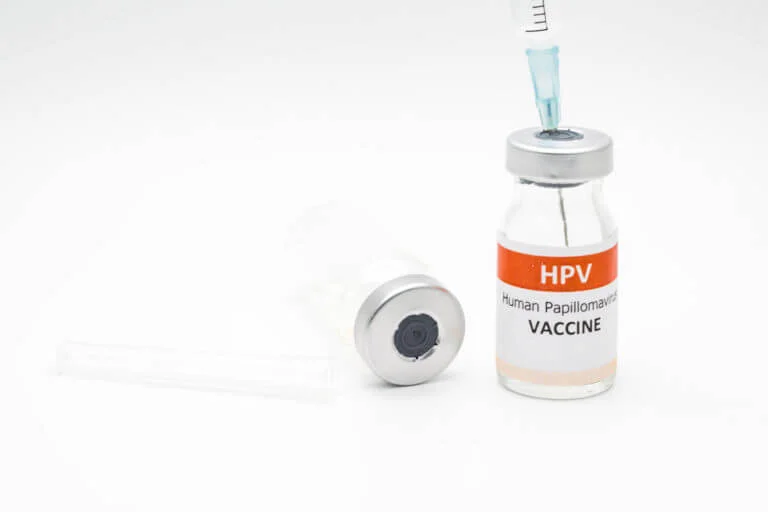A sexually transmitted infection (sexually transmitted disease) is caused by a variety of bacteria, viruses, and parasites that can be transmitted through sexual contact, including vaginal, anal, and oral sex. Symptoms of STIs usually include itching and burning around your genital area. The viral and incurable sexually transmitted infections include hepatitis B, herpes simplex virus (HSV), HIV, and human papillomavirus (HPV).
What is Human papillomavirus (HPV)?
Human papillomavirus (HPV) is a group of very common viruses. With more than 100 types, HPV affects the skin. Although they do not cause any problems in most people, some types can cause genital warts or cancer. HPV is the most common STI. Vaccines are available for HPV to stop health problems from happening. As some strains of HPV can cause warts on your hands, feet, face, etc. some can affect your genitals including your vulva, vagina, cervix, penis, and scrotum, as well as your rectum and anus. Early detection and treatment of HPV can prevent cancers from happening; so make sure to visit your gynecologist or urologist if you notice anything irregular.

How to stop human papillomavirus (HPV) from spreading?
As HPV can be spread with any skin-to-skin contact of the genital area, as well as vaginal, anal, or oral sex, even if you share sex toys with an infected person; it’s best to know how to protect yourself against human papillomavirus (HPV). HPV has no symptoms, so you may not know if you have it. Using condoms can help protect you against HPV, but since they don’t cover all the skin around the genitals, you’re not fully protected. There’s also an HPV vaccine available with can protect you against the types of HPV that cause genital warts and cervical cancer.
Does HPV cause cancer?
HPV can cause cervical, vulva, vagina, penis, or anus cancers. It can also cause cancer in the back of the throat (oropharyngeal cancer), which affects the base of the tongue and tonsils. It usually takes years and up to decades for a person to develop cancer after being affected by HPV.

How is HPV related to cervical cancer?
Certain strains of HPV can cause changes in the cells of your cervix (the opening between your vagina and your uterus), known as cervical dysplasia. If left untreated it can advance to cervical cancer. In patients under 30, HPV infections mostly clear up on their own. By age 30, finding HPV during a Pap smear (a test that screens for cervical cancer) can determine how often you should get tested. If you test positive, you may be at a higher risk and need more frequent testing.
Who should get the HPV vaccine?
All preteens (including boys and girls) at age 11 or 12 years (or can start at age 9 years).
Everyone through age 26 years old, if not vaccinated already.
Although vaccination is not recommended for those older than 26, some adults aged 27 through 45 who’ve not been vaccinated may be recommended by their healthcare provider if it’s beneficial for them. HPV vaccination in this age range provides less benefit. Most sexually active adults have already been exposed to HPV.

HPV Treatment
Although HPV treatment won’t rid your body of the virus, it can remove any visible warts on your genitals and abnormal cells in your cervix. HPV treatments may include:
Cryosurgery: Freezing warts or destroying abnormal cells with liquid nitrogen.
Loop electrosurgical excision procedure (LEEP): Using a special wire loop to remove warts or abnormal cells on your cervix.
Electrocautery: Burning warts off with an electrical current.
Laser therapy: Using an intense light to destroy warts or any abnormal cells.
Cold knife cone biopsy (ionization): Removing a cone-shaped piece of cervical tissue that contains abnormal cells.
Prescription cream: Applying medicated cream directly to your warts to destroy them.
Trichloroacetic acid (TCA): Applying a chemical treatment that burns off warts.
Most HPV infections won’t cause any problems and your body will clear them within 2 years, but if HPV is causing problems like genital warts or changes to cells in the cervix, treatment is needed.
Conclusion
In conclusion, Human Papillomavirus (HPV) is a common virus that can sometimes lead to health complications such as genital warts and certain types of cancer. However, the introduction of the HPV vaccine has been a game-changer in the fight against these health issues. Real-world data shows that the HPV vaccine has led to a significant reduction in the incidence of cervical cancer, with cases being cut by nearly 90%. The vaccine has been particularly effective in women who received it at a young age. Furthermore, the HPV vaccination program in England has demonstrated that well-planned and executed public. As the vaccine continues to be rolled out globally, it holds the promise of almost eliminating diseases caused by HPV. Therefore, the HPV vaccine represents a historic advancement in public health and a major step towards the eradication of cervical cancer.